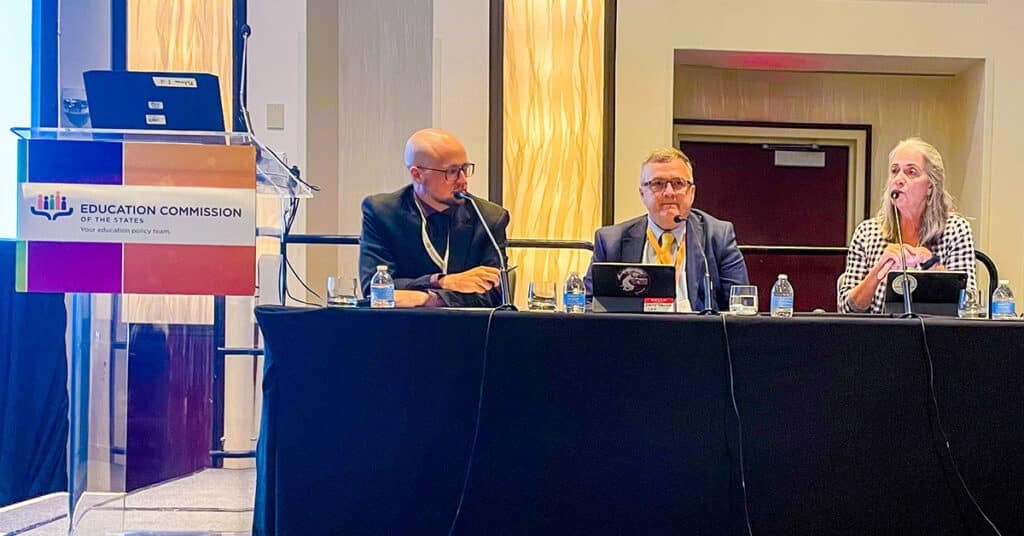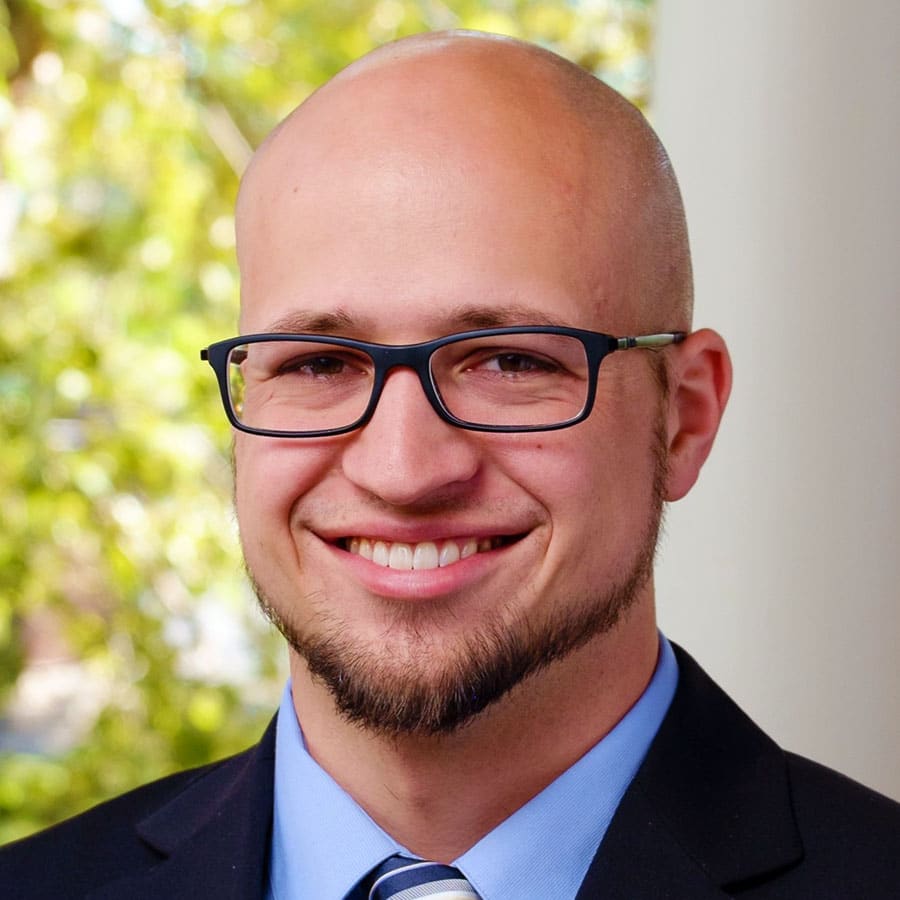Today’s children need schools to personalize instruction, perhaps now more than ever with the advent of an evolving economy and the emergence of innovations like artificial intelligence tools. Our work tells us that policy can make or break their ability to do so. But policy alone is not enough. Our experience also tells us that implementation matters as much as the formal policy.

This July, I had the privilege to facilitate a panel conversation focused on policy implementation at the Education Commission of the States national conference. Our panel included Denise Airola from Arkansas and Randy Spaulding from Washington. Both Airola and Spaulding have been leading policy implementation work in their states for years, and we organized this panel to help others learn from their experience. Here are a few key themes that we touched on during our conversation.
Policy alone isn’t enough. Both Airola and Spaulding shared that their states have had policy opportunities for innovation in place for years, sometimes decades. However, these opportunities were not being fully utilized by schools and districts. Spaulding shared that Washington has had credit waiver policies since the 90’s, while Airola related that Arkansas had established a number of laws related to charter schools, education renewal zones and distance learning in the late 90’s and early 2000’s. Both also shared that districts felt at the time that they lacked the resources and guidance to make sense of these flexibilities. This is one of the things that both states decided to address in their subsequent implementation work.
Implementation has to be deliberate. Washington and Arkansas have taken purposeful steps to build the resources and guidance needed to support innovation. Arkansas created the Office of Innovation at the University of Arkansas in 2013. The office was charged with helping support a newly created Schools of Innovation flexibility. Similarly, Washington established the Mastery-Based Learning Collaborative to build on a legislatively required working group around the subject. The states designated these entities with a clear charge and authority to help schools and districts take advantage of innovative policy opportunities and also gave them the funding and staffing necessary for them to accomplish their goals.
Implementation requires a vision. Both Arkansas and Washington have established clear visions to guide their policy implementation. Washington created its Profile of a Graduate, while Arkansas articulated a clear vision, mission and set of values to anchor its work. Both these resources have served as key levers for change in their states and guided the work of the Collaborative and the Office of Innovation.
Implementation should be a local choice. Both states have taken the very deliberate step of engaging what Spaulding called “the coalition of the willing.” Neither state has mandated change using a top-down policy structure. Rather, the two states have created flexibilities and allowed schools and districts to opt-in by engaging with the two entities in both states. Washington has done this by establishing cohorts in its Mastery-Based Learning Collaborative, while Arkansas has staff that actively work with those districts that are interested in innovation.
Connect the dots and adapt. Spaulding advised states of the importance of helping connect the dots for schools and districts, as well as the importance of embracing adaptability and change as you work through education innovation opportunities. Airola advised districts to also be adaptive, as well as responsive to the needs of their students and iterative in how the approach changes over time.
Impacts. Washington’s Mastery-Based Learning Collaborative has worked with 47 member schools in its first two cohorts so far, impacting thousands of students across the state. Arkansas’ Office of Innovation estimates that it has impacted over 300 schools, 11,000 teachers and 167,000 students in 2023 alone, with countless more students impacted over its existence. While Washington and Arkansas certainly aren’t the only states putting implementation supports in place, their level of impact speaks to the power that effective implementation can have when seeking to spur personalized, competency-based learning innovation.






